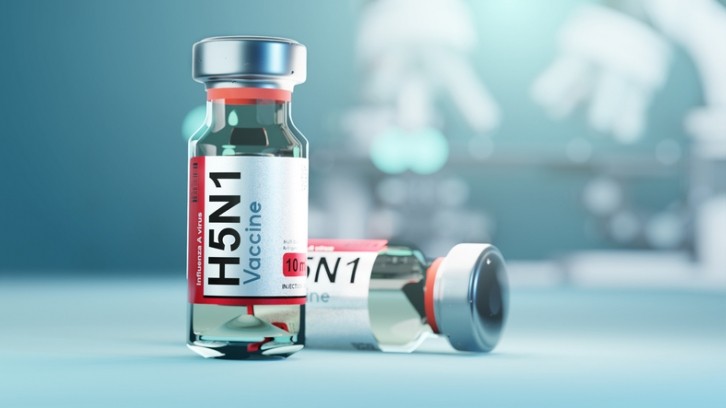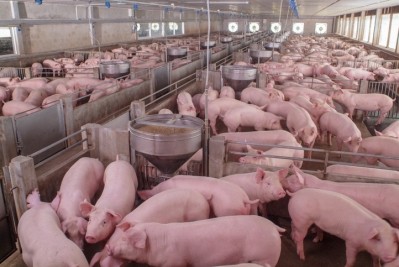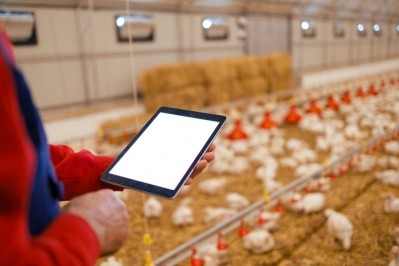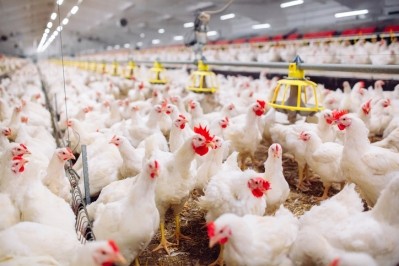Reports from IPPE 2024
To what extent is vaccination against avian influenza increasing globally?

We caught up with Claudia Garcia, head of global strategic marketing, poultry, Boehringer Ingelheim, at IPPE 2024 to get some insights on work underway in vaccines programs targeting avian influenza (AI) internationally.
“Avian flu has been problematic for the past few years, with outbreaks escalating in 2020 and 2021, and we see that the virus continues to evolve," she said.
The global spread of the virus persists with little indication of abating. Formerly limited to seasonal outbreaks, bird flu now maintains a year-round presence, leading to extensive bird culling, observed the expert. “That is a concern for the scientific community."
She emphasized the need for an evolution in risk management strategies given that heightened level of virulence.
And a WOAH conference last year heard that tackling the highly pathogenic avian influenza (HPAI) virus now requires the dedication of international and regional organizations, different administrations and all sectors and stakeholders; delegates were told that there is a need to work on guidelines on vaccination at multiple tier levels, for countries that are not exporting but also for countries that do export and countries that import.
In May, the global organization advocated for the use of vaccination against the virus.
Boehringer's approach to risk management involves providing support to both the industry and governments in multiple countries, including the offer of expertise in veterinary care and biosecurity, along with supplying vaccines for trials. Garcia explained that these efforts aim to assist national authorities in determining the most effective approach to controlling the virus.
Governments want to be able to demonstrate locally that they have crisis management plans in place, that they are controlling bird flu outbreaks, and that they want to try and avoid mass depopulation of birds, said Garcia. “It is not just about the economic losses; culling has huge emotional impact on farmers.”
Continuing, she emphasized that vaccination alone is not sufficient to control the virus. A comprehensive approach, encompassing biosecurity measures, vaccination programs, and robust surveillance, is crucial. Stressing the importance of a three-pronged strategy, she highlighted that governments must decide on the implementation of all three elements to effectively curb the spread of the disease.
Vaccination campaigns
To date, mass AI vaccination campaigns have been implemented in China, Vietnam, Indonesia, and Mexico authorized emergency vaccinations against the H5N1 bird flu strain last year. The country is currently using two vaccines, one of which is supplied by Boehringer.
Several countries in Latin America have already rolled-out vaccination programs, with Guatemala, Honduras, and El Salvador also purchasing the same vaccines used by Mexico.
The US is advanced in terms of its biosecurity approach, said Garcia, and the country is testing an array of vaccines against AI. “However, it has not yet decided on whether to go ahead with a vaccine program.”
The US is concerned about the potential poultry trade implications of doing so.
EU strategies
In May 2023, EU's 27 member states instigated an avian flu vaccine strategy, with various members states, outlined Garcia, initiating vaccine research trials in this respect.
France launched a tender in April 2023 for 80 million doses of bird flu vaccines to be ready to start its vaccination program in the autumn. In July, the government announced it has chosen Boehringer to supply those doses and, in October last year, France began vaccinating ducks against AI to try and stem the virus, the first country in the EU to do so.
Garcia told us the German firm was picked as the exclusive supplier over French supplier, Ceva Animal Health, on cost, dosage supply capacity and cold-chain storage conditions.
All indications are that vaccination programs against bird flu in France will become routine, she believes. “France has already published a second tender, for which we have reapplied.”
France is waiting for Italy and the Netherlands to release the results of their vaccine research programs in turkeys and layers, respectively, to determine its next step in relation to potentially broadening out its vaccine strategy, said the Boehringer representative.
“Italy and the Netherlands are testing a range of vaccines including ours.”
Turkeys as a species are extremely susceptive to bird flu, she added.








